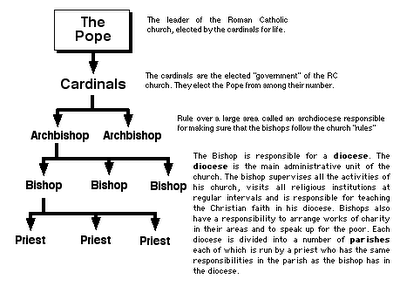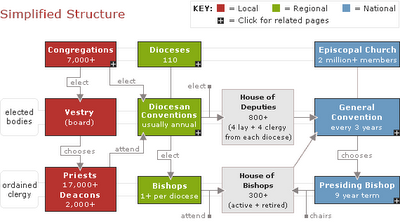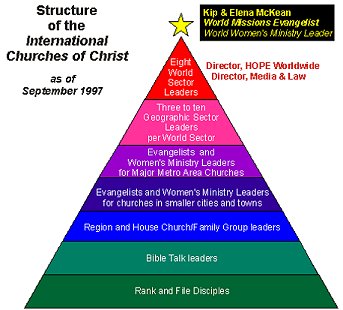Monasticism

Question:
If you live near a monastery or convent, speak with one or more of the monks or nuns. Ask them to explain their understanding of the Scripture verses (1 Corinthians 7 and Revelation 14) to which the professor refers. How do their understandings compare to what you know of fourth-century monastic thought? Otherwise, explore a website, book, or magazine article about monasticism, seeking answers to the same questions.
How do monastic beliefs relate to your understanding of human sexual relations and other appetites?
Answer:![]() Since monasticism is confined mostly to the Orthodox and Roman Catholic Church, I decided to research the Roman Catholic Catechism in order to get their statements on this topic.
Since monasticism is confined mostly to the Orthodox and Roman Catholic Church, I decided to research the Roman Catholic Catechism in order to get their statements on this topic.
“1579 All the ordained ministers of the Latin Church, with the exception of permanent deacons, are normally chosen from among men of faith who live a celibate life and who intend to remain celibate "for the sake of the kingdom of heaven."[70] Called to consecrate themselves with undivided heart to the Lord and to "the affairs of the Lord,"[71] they give themselves entirely to God and to men. Celibacy is a sign of this new life to the service of which the Church's minister is consecrated; accepted with a joyous heart celibacy radiantly proclaims the Reign of God.[72]”
(http://www.christusrex.org/www1/CDHN/orders.html#ORDERS)
Pertaining to 1 Corinthians 7, the Catechism states:
"922 From apostolic times Christian virgins, called by the Lord to cling only to him with greater freedom of heart, body, and spirit, have decided with the Church's approval to live in a state of virginity "for the sake of the Kingdom of heaven."[461]
923 "Virgins who, committed to the holy plan of following Christ more closely, are consecrated to God by the diocesan bishop according to the approved liturgical rite, are betrothed mystically to Christ, the Son of God, and are dedicated to the service of the Church."[462] By this solemn rite (Consecratio virginum), the virgin is "constituted . . . a sacred person, a transcendent sign of the Church's love for Christ, and an eschatological image of this heavenly Bride of Christ and of the life to come."[463]
924 "As with other forms of consecrated life," the order of virgins establishes the woman living in the world (or the nun) in prayer, penance, service of her brethren, and apostolic activity, according to the state of life and spiritual gifts given to her.[464] Consecrated virgins can form themselves into associations to observe their commitment more faithfully.[465] "
(http://www.christusrex.org/www1/CDH/church4.html#CONSECRATED)
Pertaining to Revelation 14:4, the Catechism states:
“Virginity for the sake of the Kingdom
1618 Christ is the center of all Christian life. The bond with him takes precedence over all other bonds, familial or social.[113] From the very beginning of the Church there have been men and women who have renounced the great good of marriage to follow the Lamb wherever he goes, to be intent on the things of the Lord, to seek to please him, and to go out to meet the Bridegroom who is coming.[114] Christ himself has invited certain persons to follow him in this way of life, of which he remains the model:
"For there are eunuchs who have been so from birth, and there are eunuchs who have been made eunuchs by men, and there are eunuchs who have made themselves eunuchs for the sake of the kingdom of heaven. He who is able to receive this, let him receive it."[115]
(Matthew 19:12)
1619 Virginity for the sake of the kingdom of heaven is an unfolding of baptismal grace, a powerful sign of the supremacy of the bond with Christ and of the ardent expectation of his return, a sign which also recalls that marriage is a reality of this present age which is passing away.[116]
1620 Both the sacrament of Matrimony and virginity for the Kingdom of God come from the Lord himself. It is he who gives them meaning and grants them the grace which is indispensable for living them out in conformity with his will.[117] Esteem of virginity for the sake of the kingdom[118] and the Christian understanding of marriage are inseparable, and they reinforce each other:
Whoever denigrates marriage also diminishes the glory of virginity. Whoever praises it makes virginity more admirable and resplendent. What appears good only in comparison with evil would not be truly good. The most excellent good is something even better than what is admitted to be good.[119]"
(http://www.christusrex.org/www1/CDHN/matri.html#MATRIMONY)
COMMENTARY:
I do see that the Catechism correlates with fourth century monastic thought even to this day. I find that little has changed in these writing from what we have read in our textbooks. The quote from the Gospel of Matthew is interesting in regards to the eunuchs, I can see how those who have suffered great pain through a loss of a loved one, have strong sexual urges, or are born without a desire to have sex, could be justification for this view. However, is it a shelter for those just like Christ is a shelter for condemned individuals who have sinned? I have a problem with “elevating” someone because of a purely physical act. How does the physical ever attain the spiritual? Isn’t this the reason why the body dies? I do not think that “elevating” celibacy is Scriptural or a “better way” or gives someone “brownie points”. It may eliminate distractions, but eliminating distractions does not bring about salvation. Once saved always saved…or if I am celibate, am I more saved than someone who is not celibate? That is an odd twist…
Here is a commentary from a Protestant site that I found:
“Question: "Does the Bible teach the celibacy of priests?"
Answer: This is an interesting question to answer, as the Bible does not even teach that there are to be “priests” in the New Covenant established by Christ. Please read our articles on the “priesthood of believers” and “confession of sin to a priest” for more information. The Bible addresses the celibacy of church leaders, but not priests.
In regards to celibacy of church leaders, in 1 Corinthians chapter 7, the Apostle Paul teaches, “An unmarried man is concerned about the Lord's affairs — how he can please the Lord. But a married man is concerned about the affairs of this world — how he can please his wife— and his interests are divided” (1 Corinthians 7:32-34). In some instances, celibacy has a positive impact on ministry. If a church leader is free from spousal and familial responsibilities, he can better focus on ministering to others. Jesus mentions some becoming “eunuchs” for the kingdom of God (Matthew 19:23). Celibacy is definitely allowed for church leaders, and to a certain degree, it is encouraged. However, Scripture nowhere requires celibacy for those serving in positions of church leadership.
In 1 Timothy 3:1-13 and Titus 1:6-9, the Apostle Paul seems to assume that elders, bishops, overseers, and deacons will be married. Notice the phrases: “the husband of one wife” (1 Timothy 3:2,12; Titus 1:6), “he must manage his own family well” (1 Timothy 3:4,12), “his children obey him with proper respect” (1 Timothy 3:4; Titus 1:6). On a related issue, please read our article on whether these Scripture mean that a church leader must be married and have children. While these Scriptures are not a requirement for church leaders to be married, they most definitely present an allowance for church leaders to be married. It is therefore anti-biblical for any church to require celibacy of its leaders.
Why, then, does the Roman Catholic Church (and a few other Christian denominations) require celibacy of its church leaders / priests? The celibacy of priests has an interesting history. The first official church statements requiring celibacy appeared at the councils of Elvira (A.D. 306) and Carthage (A.D. 390), although clerical celibacy, to a lesser degree, definitely predated these councils. Ultimately, though, celibacy became the official requirement of the Roman Catholic Church due to the practice of nepotism. Church leaders were giving their children positions in the church, despite a lack of any qualifications or training. Further, church leaders were giving church property to their descendants. As a result, the Roman Catholic Church mandated celibacy in order to keep its priests from having familial attachments which made nepotism attractive.
Again, the Bible encourages, but does not demand celibacy. In fact, Paul recognizes that most church leader will be married. The Roman Catholic requirement of celibacy is a sad example of the Church taking something that the Bible encourages, and transforming it into a requirement, in order to protect its own interests.”
(http://www.gotquestions.org/celibacy-priests.html)



















